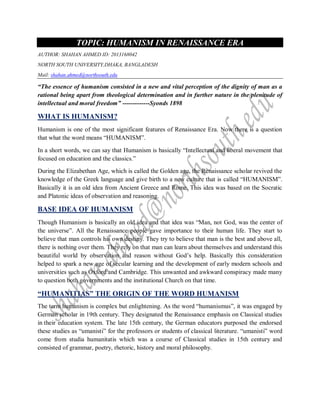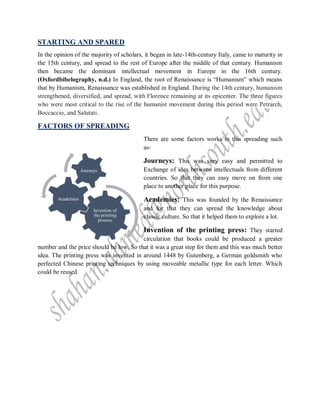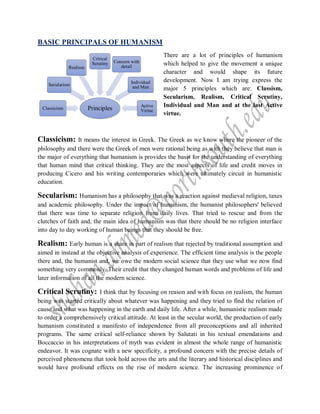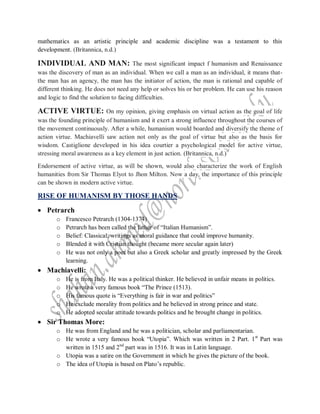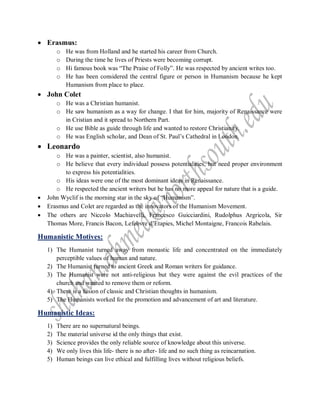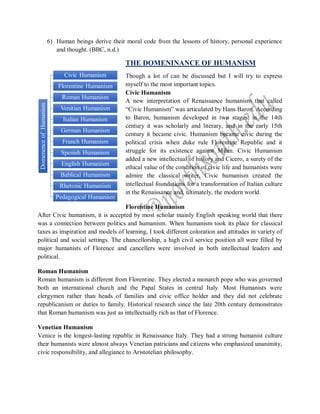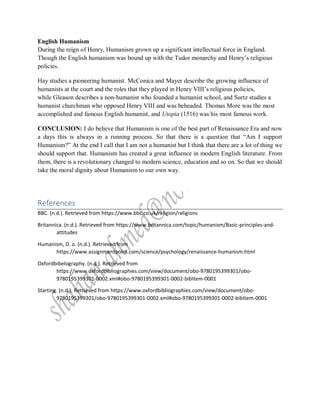This document provides an overview of humanism during the Renaissance era. It defines humanism as an intellectual movement that focused on education, classical learning, and the dignity of man. Key aspects discussed include the emphasis on secularism and reason over religion, the influence of classical Greek and Roman thinkers, and the focus on man as an individual. The document also examines the rise of humanism through important figures like Petrarch and Erasmus, and how it spread and took on different forms in places like Florence, Rome, and England.
